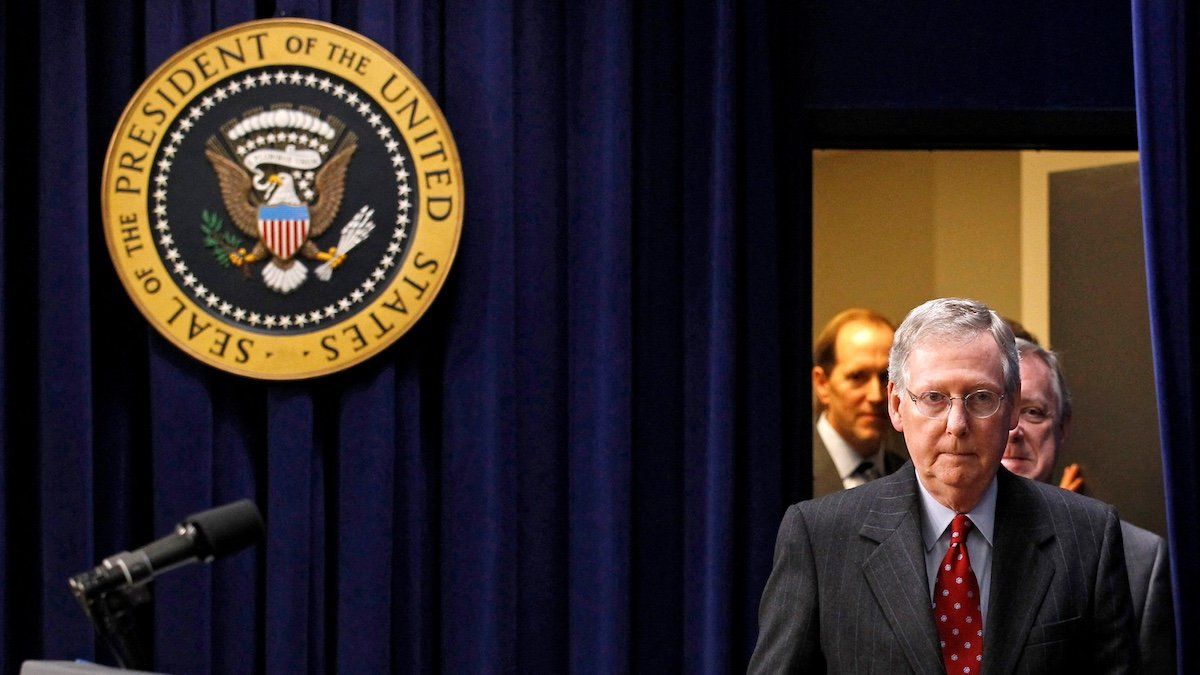FILE PHOTO: U.S. Senate Republican leader Mitch McConnell (R-KY) arrives for the signing into law a bill at the Eisenhower Executive Office Building in Washington, December 17, 2010.
REUTERS/Jim Young/File Photo
Sen. Mitch McConnell of Kentucky announced Wednesday he would step down as Senate Minority leader in November after 17 years at the top of the Senate GOP. McConnell’s resignation comes as he faces pressure to endorse former President Donald Trump’s re-election bid, but the two reportedly haven’t spoken in over three years.
Why now? McConnell was frank: The winds have turned against him. The Reaganite ideals in vogue when McConnell first came to office in 1985 have been supplanted by Trumpist populism.
“I have many faults,” McConnell said. “Misunderstanding politics is not one of them.”
Even ardent opponents would have to agree. McConnell’s tactical reputation is legendary – to give arguably the most impactful example, he ensured a 6-3 conservative majority on the Supreme Court by blocking confirmation hearings for then-nominee Merrick Garland during President Barack Obama’s last term. The ramifications of that legacy will outlive us all.
Who’s next? The iPhone wasn’t on the market the last time Senate Republicans confronted leadership questions, but expect a little more MAGA. Sen. John Cornyn of Texas would seem to fit the bill, but keep your eye on Minority Whip John Thune, who might be more palatable to moderates.